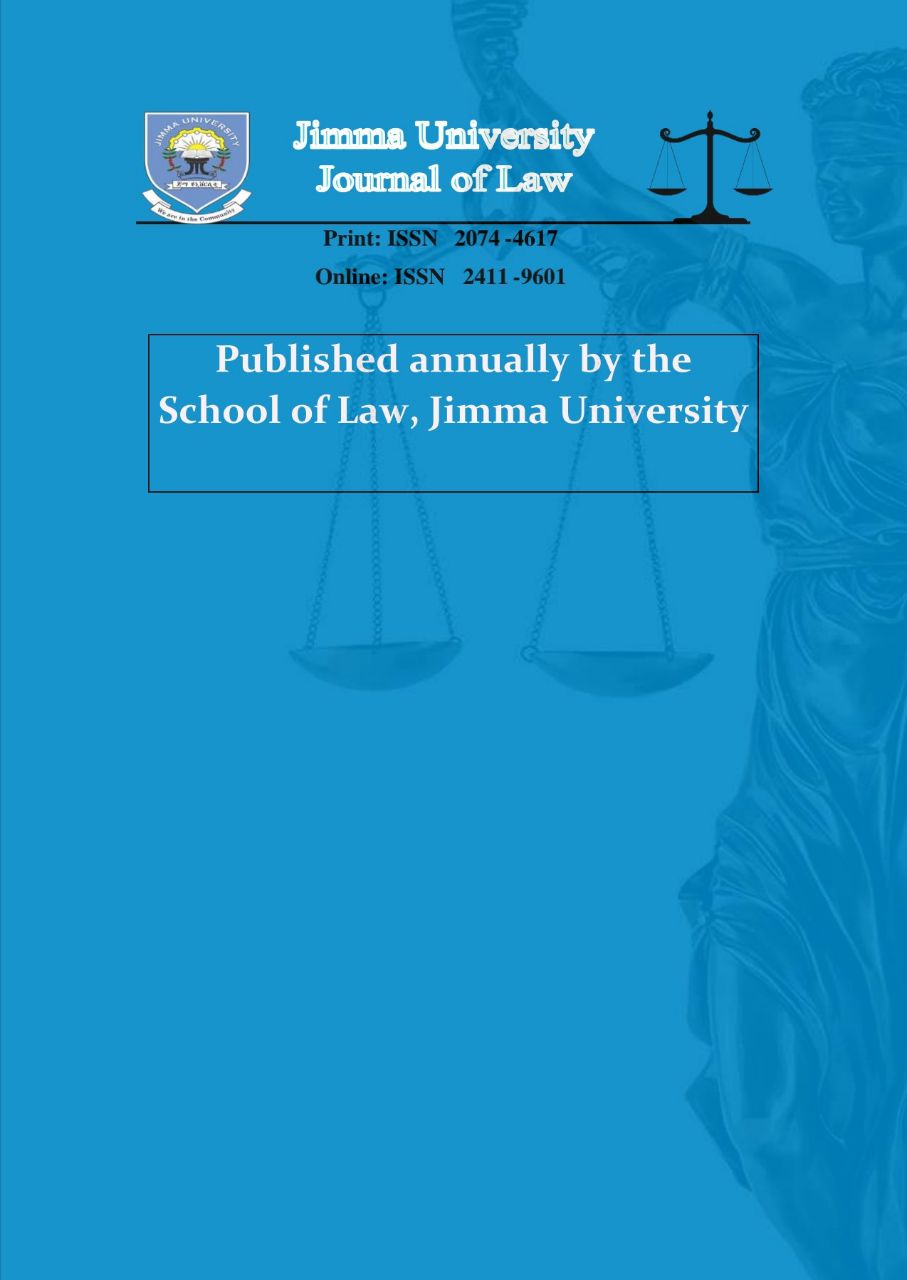Implications of the Ethiopian Computer Crime Proclamation on Freedom of Expression
Abstract
Freedom of expression is a fundamental right recognized under the Constitution of the Federal Democratic Republic of Ethiopia (FDRE Constitution, hereafter) and international human rights instruments. The enjoyment of such right has been expanded through the advancement of the internet. Indeed, the internet has become a global mass medium of communication and expression of all kinds. The internet has also given rise to new challenges. In order to address these challenges, states have enacted various pieces of legislation such as computer crime law, data protection law, and digital signature law. Like many other countries, Ethiopia enacted Computer Crime Proclamation in 2016 in order to protect the national economic and political stability of the country. However, the proclamation establishes serious offenses that are likely to adversely impact on the enjoyment of freedom of expression. This article examines the implications of the Ethiopian Computer Crime Proclamation on the exercise of the right to freedom of expression and argues that the proclamation impinges on freedom of expression.
Copyright (c) 2018 Jimma University

This work is licensed under a Creative Commons Attribution 4.0 International License.




